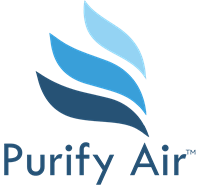Can Air Purifiers Kill Mould and Viruses?
Air Purifiers are devices designed to improve indoor air quality by removing pollutants, allergens, and contaminants from the air. They work by filtering the air and capturing various particles, including dust, pollen, pet dander, and smoke. While air purifiers can be effective in reducing airborne mould spores and some types of viruses, it is important to understand their limitations and the factors that affect their efficiency.
Mould is a common household problem that thrives in damp and humid environments. Mould spores are tiny, lightweight particles that can become airborne and spread throughout a home, potentially causing health issues such as allergies and respiratory problems.
Air Purifiers equipped with High-Efficiency Particulate Air (HEPA) filters can effectively capture mould spores from the air, reducing their presence and the likelihood of mould growth. HEPA filters have a fine mesh that can trap particles as small as 0.3 microns with high efficiency, which includes most mould spores.
However, there are also alternatives to Air Purifiers with HEPA filters only.
Pre-existing and established mould will still need to be removed or cleaned using traditional methods, however, PHI Air Purification is highly effective at preventing further mould growth & spread.
Mould spreads by releasing mould spores into the air. These mould spores travel through the air and land on a new surface to grow.
Mould spores can also cause serious health issues if inhaled, including respiratory issues, coughing, itchy eyes or skin, stuffy nose, wheezing and more.
How does PHI Active Air Purification work?
Patented PHI Air Purification technology generates tiny “air cleaners” (airborne hydro-peroxides) which actively seek-and-destroy contaminants in the air around you, including mould spores.
This means that in a space treated by PHI Air Purifiers, any mould spores will be targeted and deactivated as soon as they’re released, effectively stopping the mould’s ability to reproduce, and spread.
Are PHI Air Purifiers suitable for residential or commercial use?
Yes! There is a range of PHI Active Air Purifiers suitable for homes and businesses of all sizes – including standalone units, devices to fit existing reverse cycle air conditioners, and purifiers designed for large, ducted air handling units in commercial or industrial buildings.
lt's important to note that Air Purifiers cannot eliminate mould entirely or address the root cause of mould growth, which is moisture. To effectively control mould, it is crucial to identify and address the source of moisture, such as leaks or excess humidity. Additionally, any existing mould infestations should be properly cleaned and remediated by professionals to prevent further spread.
When it comes to viruses, Air Purifiers can help to some extent, depending on the type of virus and the design of the purifier. Some Air Purifiers utilize additional technologies, such as ultraviolet germicidal irradiation (UVGI) or photocatalytic oxidation, to target and neutralize viruses. UVGI uses UV-C light to destroy the DNA or RNA of viruses, rendering them inactive. Photocatalytic oxidation, on the other hand, employs a combination of UV light and a catalyst to create a reaction that breaks down harmful pollutants, including viruses.
PHI Air Purifiers are not just effective against the COVID virus – they have been scientifically shown to be effective against a large range of viruses, bacteria, mould spores, odours, VOC’s (chemical gases), smoke, dust, dander, pollen and a heap of other airborne threats and allergens.
While these additional technologies can enhance the virus-fighting capabilities of air purifiers, their effectiveness may vary depending on factors such as the intensity and duration of exposure to the UV light or the catalytic properties of the oxidation process. It's important to select air purifiers that specifically mention virus filtration capabilities and to follow manufacturer guidelines for optimal usage.
It's worth noting that not all Air Purifiers are created equal, and the performance of an Air Purifier depends on several factors. The size of the room or space being purified is a crucial consideration. Air Purifiers are rated based on their Clean Air Delivery Rate (CADR), which indicates the volume of clean air they can provide per unit of time. Choosing an Air Purifier with an appropriate CADR for the room size is essential for optimal performance.
While Air Purifiers can be valuable tools in improving indoor air quality and reducing the presence of mould spores and some viruses, they should not be relied upon as the sole solution for mould remediation or virus control. Proper ventilation, moisture control, regular cleaning, and good hygiene practices are also vital in maintaining a healthy indoor environment.
In conclusion, Air Purifiers with HEPA filters or PHI Active Air Purification can effectively capture mould spores, reducing their presence in the air. Some Air Purifiers equipped with additional technologies like UVGI or photocatalytic oxidation can also help neutralize certain types of viruses. However, it is important to remember that Air Purifiers are not a cure-all solution. They should be used as part of a comprehensive approach.









